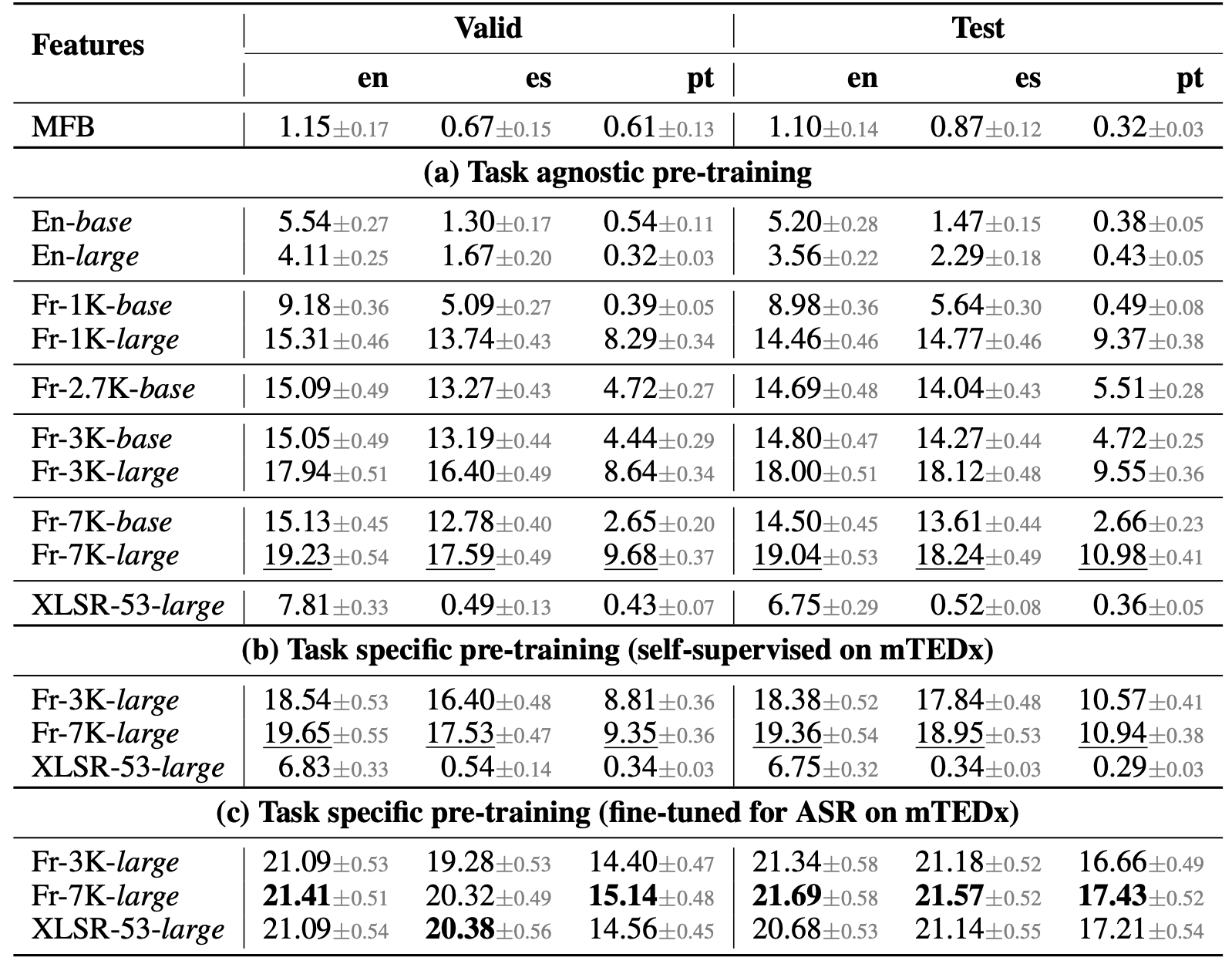Task Agnostic and Task Specific Self-Supervised Learning from Speech with LeBenchmark
Neural Information Processing Systems (NeurIPS), 2021
PDF Code Publisher
Abstract
Self-Supervised Learning (SSL) has yielded remarkable improvements in many different domains including computer vision, natural language processing and speech processing by leveraging large amounts of unlabeled data. In the specific context of speech, however, and despite promising results, there exists a clear lack of standardization in the evaluation process for comprehensive comparisons of these models. This issue gets even worse with the investigation of SSL approaches for other languages than English. We present LeBenchmark, an open-source and reproducible framework for assessing SSL from French speech data. It includes documented, large-scale and heterogeneous corpora, seven pretrained SSL wav2vec 2.0 models shared with the community, and a clear evaluation protocol made of four downstream tasks along with their scoring scripts: automatic speech recogni- tion, spoken language understanding, automatic speech translation and automatic emotion recognition. For the first time, SSL models are analyzed and compared on the latter domains both from a task-agnostic (i.e. frozen) and task-specific (i.e. fine-tuned w.r.t the downstream task) perspectives. We report state-of-the-art performance on most considered French tasks and provide a readable evaluation set-up for the development of future SSL models for speech processing.

Citation
@inproceedings{evain2021task,
author = {Sol{\`{e}}ne Evain and
Ha Nguyen and
Hang Le and
Marcely Zanon Boito and
Salima Mdhaffar and
Sina Alisamir and
Ziyi Tong and
Natalia A. Tomashenko and
Marco Dinarelli and
Titouan Parcollet and
Alexandre Allauzen and
Yannick Est{\`{e}}ve and
Benjamin Lecouteux and
Fran{\c{c}}ois Portet and
Solange Rossato and
Fabien Ringeval and
Didier Schwab and
Laurent Besacier},
title = {Task Agnostic and Task Specific Self-Supervised Learning from Speech
with LeBenchmark},
booktitle = {Thirty-fifth Conference on Neural Information Processing Systems (NeurIPS)},
year = {2021}
}